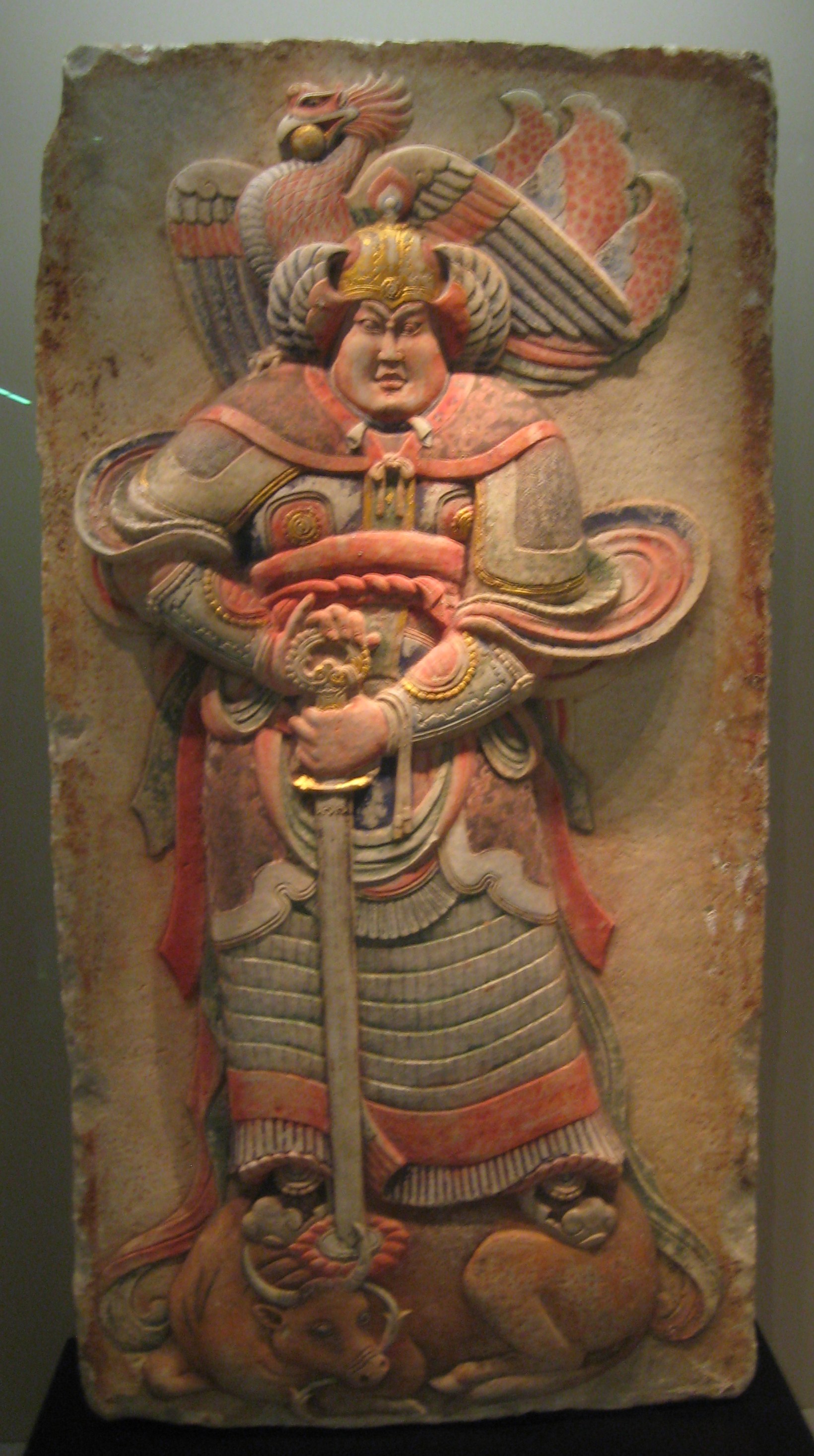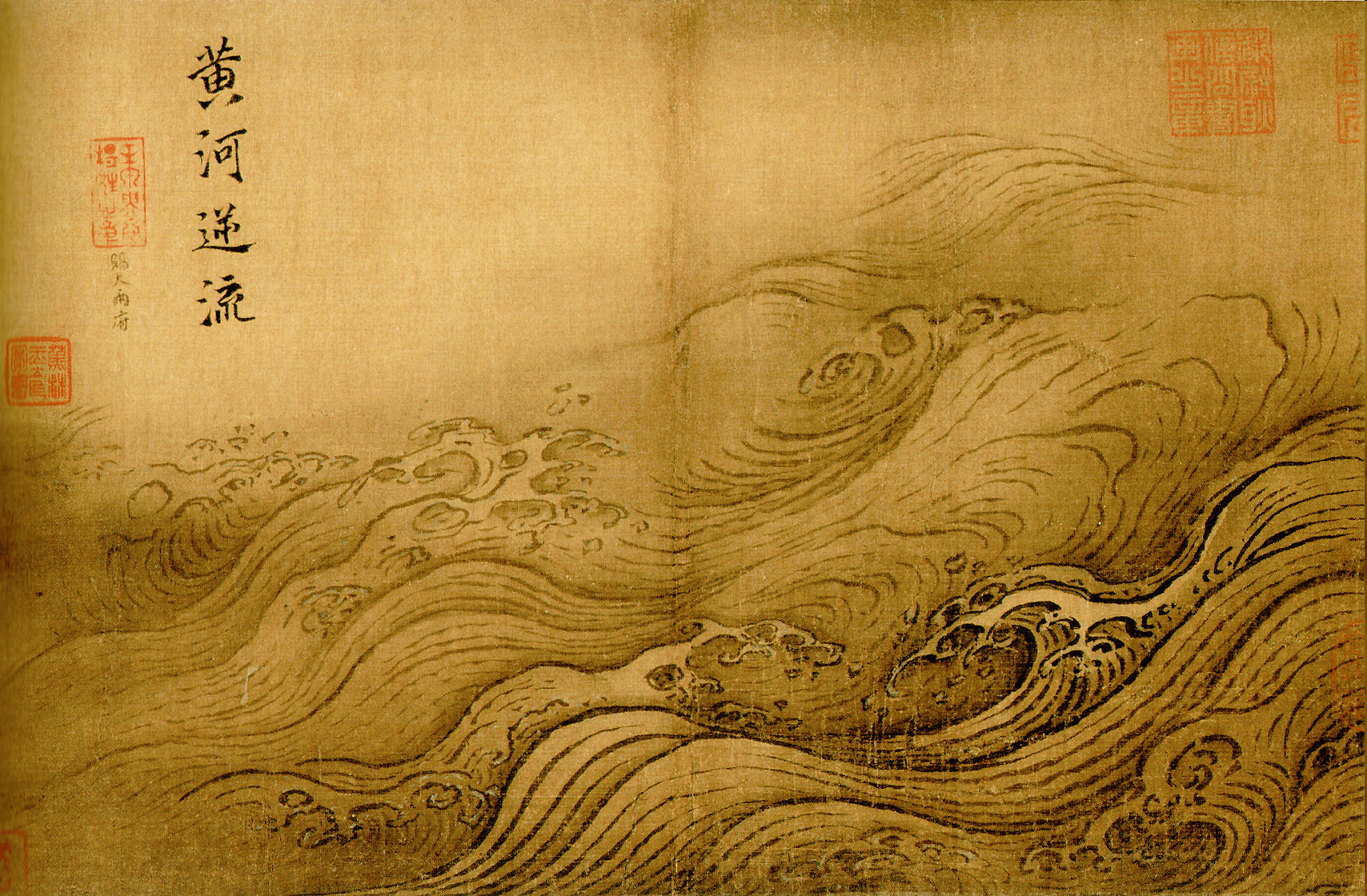|
Liu Churang
Liu Churang () (881''Old History of the Five Dynasties'', vol. 94.-April 6, 943Academia Sinicabr>Chinese-Western Calendar Converter), courtesy name Deqian (), was a general of the Chinese Five Dynasties and Ten Kingdoms Period states Later Tang (including Later Tang's predecessor state Jin) and Later Jin, serving as a chief of staff (''Shumishi'') during the reign of Later Jin's founding emperor Shi Jingtang. Background Liu Churang was born in 881, during the reign of Emperor Xizong of Tang. It is known that he was from Cang Prefecture (滄州, in modern Cangzhou, Hebei), but all that is known about his family background were the names of his grandfather Liu Xin () and father Liu Yu (). Based on his geographic origin and subsequent service under Zhang Wanjin (), it appeared likely that he first came under Zhang's service around the time that Zhang, then a general of the post-Tang state of Yan, was serving as the commander of the army of Yan's Yichang Circuit (義昌, headquarter ... [...More Info...] [...Related Items...] OR: [Wikipedia] [Google] [Baidu] |
Old History Of The Five Dynasties
The ''Old History of the Five Dynasties'' (''Jiù Wǔdài Shǐ'') was an official history mainly focus on Five Dynasties era (907–960), which controlled much of northern China. And it also includes some history of other south states during the era. It was compiled by the Song dynasty official-scholar Xue Juzheng in the first two decades of the Song dynasty, which was founded in 960. It is one of the Twenty-Four Histories recognized through Chinese history. The book comprises 150 chapters, and was in effect divided into 7 books, they are: ''Book of Liang'' (24 volume), ''Book of Tang'' (50 volume), ''Book of Jin'' (24 volume), ''Book of Han'' (11 volume), ''Book of Zhou'' (22 volume), '' Liezhuan'' (7 volume) and ''Zhi'' (12 volume), respectively''.'' After the ''New History of the Five Dynasties'' by Ouyang Xiu was published, it was no longer popular. In the 12th century it was removed from the Imperial Library and was no longer published by order of the Jin dynasty. The book ... [...More Info...] [...Related Items...] OR: [Wikipedia] [Google] [Baidu] |
Later Liang (Five Dynasties)
Liang, known in historiography as the Later Liang () (1 June 907 – 19 November 923) or the Zhu Liang (), was an imperial dynasty of China and the first of the Five Dynasties during the Five Dynasties and Ten Kingdoms period. It was founded by Zhu Wen (Emperor Taizu), after he forced the last emperor of the Tang dynasty to abdicate in his favour (and then murdered him). The Later Liang would last until 923 when it was destroyed by the Later Tang dynasty. Formation Zhu Wen initially allied himself as Huang Chao's lieutenant. However, he took Huang's best troops and established his own power base as a warlord in Kaifeng. By 904, he had exerted control over both of the twin Tang Dynasty capitals of Chang'an and Luoyang. Tang emperor Zhaozong was ordered murdered by Zhu in 904 and the last Tang emperor, Ai Di (Emperor Ai of Tang), was deposed three years later. Emperor Ai of Tang was murdered in 908, also ordered by Zhu. Meanwhile, Zhu Wen declared himself emperor of the new ... [...More Info...] [...Related Items...] OR: [Wikipedia] [Google] [Baidu] |
Liu Xun (Later Liang)
Liu Xun () (858'' Old History of the Five Dynasties'', vol. 23.-June 10, 921''Zizhi Tongjian'', vol. 271. Academia Sinicabr>Chinese-Western Calendar Converter) was a major general of the Chinese Five Dynasties and Ten Kingdoms period state Later Liang. He was a key commander of Later Liang forces in its struggle with its archenemy Jin, but, after repeated defeats by the Jin prince Li Cunxu, Liu sought retirement, and was subsequently poisoned to death by the Later Liang emperor Zhu Zhen, who doubted his loyalty. During Tang Dynasty Background Liu Xun was born in 858, during the reign of Emperor Xuānzong of Tang. His family was from Anqiu (安丘, in modern Weifang, Shandong). His grandfather Liu Shou () served as a census administrator for the prefectural government of Mi Prefecture, which Anqiu belonged to, and his father Liu Rong () served as the Anqiu County magistrate. It was said that Liu Xun was ambitious in his youth, favored the study of military strategies, ... [...More Info...] [...Related Items...] OR: [Wikipedia] [Google] [Baidu] |
Li Cunxu
Emperor Zhuangzong of Later Tang (), personal name Li Cunxu (), nickname Yazi (), stage name Li Tianxia (), was the ruling prince of the Former Jin dynasty (r. 908–923) and later became the founding emperor of the Later Tang dynasty (r. 923–926) during the Five Dynasties and Ten Kingdoms period of Chinese history.Cihai: Page 1266. He was the son of Li Keyong, an ethnic Shatuo Jiedushi of the Tang dynasty. Li Cunxu was considered one of the most militarily capable rulers of the Five Dynasties and Ten Kingdoms Period. When he succeeded his father Li Keyong as the Prince of Jin, Jin had been weakened in the late years of Li Keyong's rule and not considered capable of posing a military threat to its archrival to the south, Later Liang, whose founding emperor Zhu Quanzhong had seized the Tang throne. Li Cunxu carefully rebuilt the Jin state, using a series of conquests and alliances to take over most of the territory north of the Yellow River, before starting a lengthy campai ... [...More Info...] [...Related Items...] OR: [Wikipedia] [Google] [Baidu] |
Yellow River
The Yellow River or Huang He (Chinese: , Standard Beijing Mandarin, Mandarin: ''Huáng hé'' ) is the second-longest river in China, after the Yangtze River, and the List of rivers by length, sixth-longest river system in the world at the estimated length of . Originating in the Bayan Har Mountains in Qinghai province of Western China, it flows through nine provinces, and it empties into the Bohai Sea near the city of Dongying in Shandong province. The Yellow River basin has an east–west extent of about and a north–south extent of about . Its total drainage area is about . The Yellow River's basin was the Yellow River civilization, birthplace of ancient Chinese, and, by extension, Far East, Far Eastern civilization, and it was the most prosperous region in early Chinese history. There are frequent devastating natural disasters in China, floods and course changes produced by the continual elevation of the river bed, sometimes above the level of its surrounding farm fi ... [...More Info...] [...Related Items...] OR: [Wikipedia] [Google] [Baidu] |
Zhu Youzhen
Zhu Zhen (朱瑱) (20 October 888 – 18 November 923), often referred to in traditional histories as Emperor Mo of Later Liang (後梁末帝, "last emperor") and sometimes by his princely title Prince of Jun (均王), né Zhu Youzhen (朱友貞), known as Zhu Huang (朱鍠) from 913 to 915, was the emperor of the Chinese Five Dynasties and Ten Kingdoms period state Later Liang from 913 to 923. He was the third and last emperor of Later Liang, the first of the Five Dynasties. He ordered his general Huangfu Lin (皇甫麟) to kill him in 923 when Emperor Zhuangzong of Later Tang (Li Cunxu), the emperor of Later Liang's enemy Later Tang to the north, was on the cusp of capturing the Later Liang capital Daliang. His death marked the end of Later Liang, which was to be the longest among the Five Dynasties. Despite his ten-year reign being the longest of all the Five Dynasties emperors (if one does not count Li Cunxu's reign as the Prince of Jin prior to taking imperial title) sour ... [...More Info...] [...Related Items...] OR: [Wikipedia] [Google] [Baidu] |
Jining
Jining () is a prefecture-level city in southwestern Shandong province. It borders Heze to the southwest, Zaozhuang to the southeast, Tai'an to the northeast, and the provinces of Henan and Jiangsu to the northwest and south respectively. Jining, which is located directly to the north of Lake Nanyang (), is today the northernmost city reachable by navigation on the Grand Canal of China making it an important inland port. Its population was 8,081,905 at the 2010 census, of whom 1,518,000 lived in the built-up (''or metro'') area made up of Rencheng urban district on , Yanzhou district not being totally conurbated yet. History The name Jining was first given to the region in the year 1271 during the Song dynasty, although the exact area and type of administrative district it refers to have varied over the centuries. Jining has several distinctive associations in Chinese history and culture, as in antiquity it was the birthplace and home of Confucius, along with many of his more ... [...More Info...] [...Related Items...] OR: [Wikipedia] [Google] [Baidu] |
Zizhi Tongjian
''Zizhi Tongjian'' () is a pioneering reference work in Chinese historiography, published in 1084 AD during the Northern Song dynasty in the form of a chronicle recording Chinese history from 403 BC to 959 AD, covering 16 dynasties and spanning almost 1400 years. The main text is arranged into 294 scrolls (''juan'' , equivalent to a chapter) totaling about 3 million Chinese characters. In 1065 AD, Emperor Yingzong of Song commissioned his official Sima Guang (1019–1086 AD) to lead a project to compile a universal history of China, and granted him funding and the authority to appoint his own staff. His team took 19 years to complete the work and in 1084 AD it was presented to Emperor Yingzong's successor Emperor Shenzong of Song. It was well-received and has proved to be immensely influential among both scholars and the general public. Endymion Wilkinson regards it as reference quality: "It had an enormous influence on later Chinese historical wri ... [...More Info...] [...Related Items...] OR: [Wikipedia] [Google] [Baidu] |




